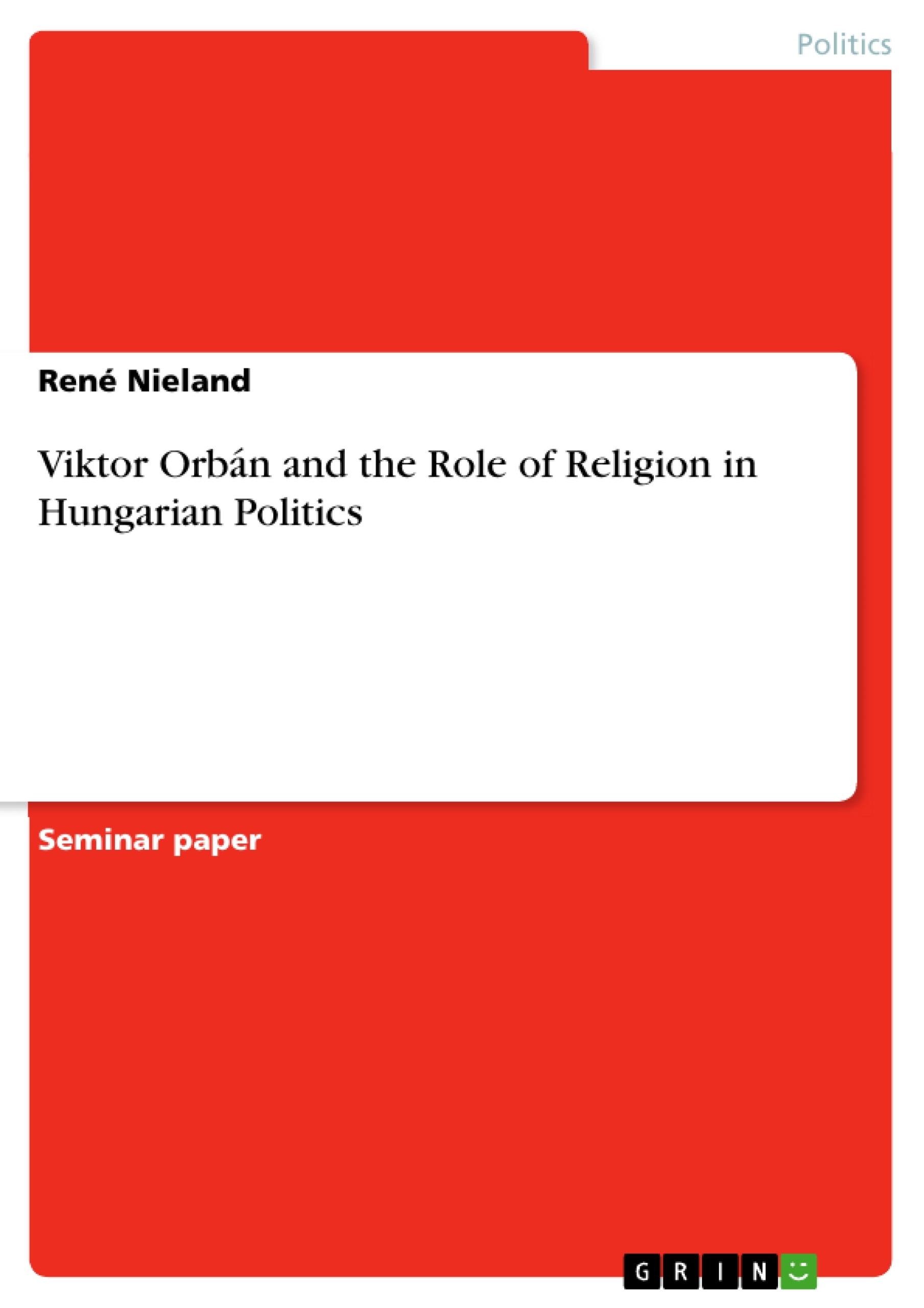This paper examines the role of religion both in Hungarian society and explicitly in Mr. Viktor Orbán's successful political oevre. The aim of this research report will be to explain why Viktor Orbán and his Christianity-fueled public statements are not vehemently rejected, as one could suspect from the country’s secular and secularized past, but instead very much appreciated by the general public, which was before Mr. Orbán unused to political profiling through religious affiliation.
For this purpose, I studied articles on Hungarian current affairs specifically trying to find a pattern to understand on the one hand, the governmental success of the re-definition, on the other hand the societal acceptance and encouragement of the former, finally combining it with ideas of Francis Fukuyama’s recent thoughts on identity politics, as to me it seems to be a strong shifting and crafting of a new identity, which happens in Hungary, one that happens in ways deemed in-appropriate in Europe and utterly despicable in democratic societies.
Inhaltsverzeichnis (Table of Contents)
- Introduction
- A concept of identity and reshaping self-awareness
- Viktor Orbán and the relation to Christianity
- Reinterpreting Christianity in the Orbánean context
- Conclusions
Zielsetzung und Themenschwerpunkte (Objectives and Key Themes)
This research report aims to explain the societal acceptance of Viktor Orbán's Christianity-fueled public statements in Hungary, despite the country's secular past. The report examines the governmental success of this redefinition of Hungarian identity and the societal encouragement it receives, drawing upon Francis Fukuyama's ideas on identity politics.
- The reshaping of Hungarian identity in the post-1989 transition period
- The role of Christianity in Viktor Orbán's political strategy
- The interplay between Hungarian history, identity politics, and the rise of populism
- The perception of Hungary's relationship with Europe and its Christian values
- The impact of the "long summer of migration" on European populism
Zusammenfassung der Kapitel (Chapter Summaries)
- Introduction: This chapter sets the scene by contrasting Hungary's post-1989 image as a model student in Central/Eastern Europe with its current image as a right-wing populist state. It introduces the key figures and events that led to Viktor Orbán's rise to power, highlighting the growing significance of Christianity in Hungarian political discourse.
- A concept of identity and reshaping self-awareness: This chapter explores the concept of identity through Fukuyama's framework of Plato's "thymos." It analyzes the internal conflicts of Hungarian identity, including the historical and linguistic "paria position" of the Magyar people, the "trauma" of the Trianon Treaty, and the contemporary framing of Hungary as a defender of Christian values against Muslim immigration. The chapter further discusses the impact of the post-1989 transition on Hungarian society and the rise of populist sentiments.
- Viktor Orbán and the relation to Christianity: This chapter analyzes the systemic changes within Fidesz under Orbán's leadership, highlighting the personalization of the party around his figure. It examines the shift from a traditional party structure to one centered around Orbán's vision, paving the way for his use of Christianity as a central element of his political strategy.
Schlüsselwörter (Keywords)
The main keywords and focus topics of this research report include: Hungarian identity, Viktor Orbán, Christianity, populism, identity politics, post-1989 transition, Trianon Treaty, European integration, "long summer of migration," and Francis Fukuyama's theory of "thymos."
- Quote paper
- René Nieland (Author), 2019, Viktor Orbán and the Role of Religion in Hungarian Politics, Munich, GRIN Verlag, https://www.grin.com/document/462259




